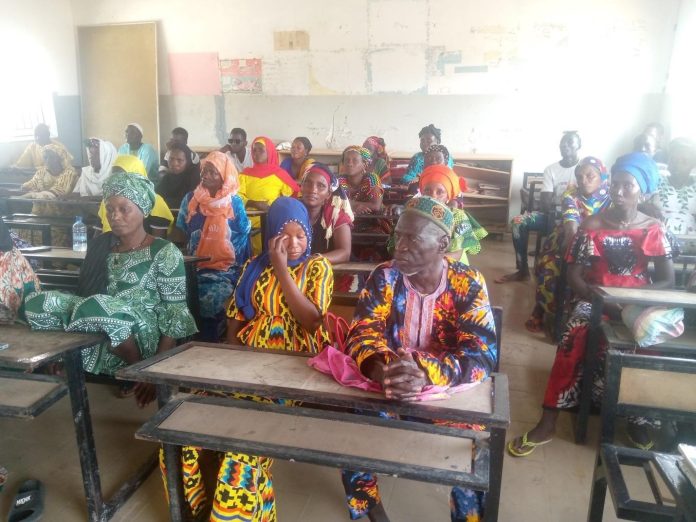By Ndey Sowe
The National Nutrition Agency (NaNA), in partnership with the Department of Community Development (DCD) and the Directorate of Social Welfare (DSW), has commenced a comprehensive training of Inter-Personal Communication (IPC) networks across the West Coast and Lower River Regions on Social and Behavioural Change Communication (SBCC) tools and materials.
This initiative forms part of the broader ‘Nafa’ Program—a key sub-component of the Gambia Resilience, Inclusive, and Equitable Social Protection Project (RISE), jointly funded by the World Bank and the Government of The Gambia. Targeted at the 20 poorest districts in the country, the program reaches approximately 17,000 extremely poor households, offering bi-monthly cash transfers alongside SBCC activities aimed at promoting positive behavioral change.
Speaking during the training, Malang N. Fofana, Executive Director of NaNA and Coordinator of the Nafa Component, emphasized the critical role of IPC networks—referred to as Village Support Groups (VSGs)—in disseminating the SBCC messages that form the backbone of the Nafa program’s community-level engagement.
“The IPC networks are a very important and vibrant structure of NaNA, particularly in the delivery of SBCC in our work,” Mr. Fofana said.
The modules covered in the training include Basic Information on the RISE Project, Maternal and Child Health Nutrition, Positive Playful Parenting, Gender-Based Violence, Early Childhood Development, Entrepreneurship and Financial Literacy, and Agriculture and Climate Change. These modules are expected to be shared with community members, especially parents, after the training.
“This is long overdue considering the work of the IPC networks,” Mr. Fofana noted, recalling that the last training was held in 2022. He stressed that IPC networks play a pivotal role in community development by engaging stakeholders and encouraging the adoption of desirable behaviors promoted through NaNA’s programs.
Fofana further disclosed that monitoring exercises conducted last year revealed knowledge gaps among IPC members in some of the SBCC modules. “We organised this training to fill in the gaps… We want to ensure all modules are adequately treated during the training and all the IPCs are grounded on all the modules, so that when they go back, they can train and convey the messages effectively in their communities,” he explained.
He also urged beneficiaries of the Nafa cash transfer to invest the funds in sustainable, income-generating ventures, reminding them that the support will eventually come to an end.
“I can assure you that if you go to most of the households now, they are venturing into meaningful income-generating activities—some have small ruminants, others poultry, backyard gardens, or even opened small shops for petty trading,” he stated.
Fofana extended appreciation to the World Bank for its $92 million grant investment in the RISE project, which he described as vital in strengthening human capital. He reiterated that the SBCC component seeks to ensure that communities are informed, educated, and empowered to adopt behaviours that can transform their health and livelihoods.
Participants Tado Bah and Ebrima Jawla both lauded the training, highlighting its relevance and potential impact on their lives and communities. “The topics covered will greatly enhance our lives and standards of living, especially for our parents and communities,” one participant said.
The ongoing IPC training, organised across 160 sites nationwide, engages 802 communities from all regions, marking a significant step in building resilient and informed grassroots networks.


















